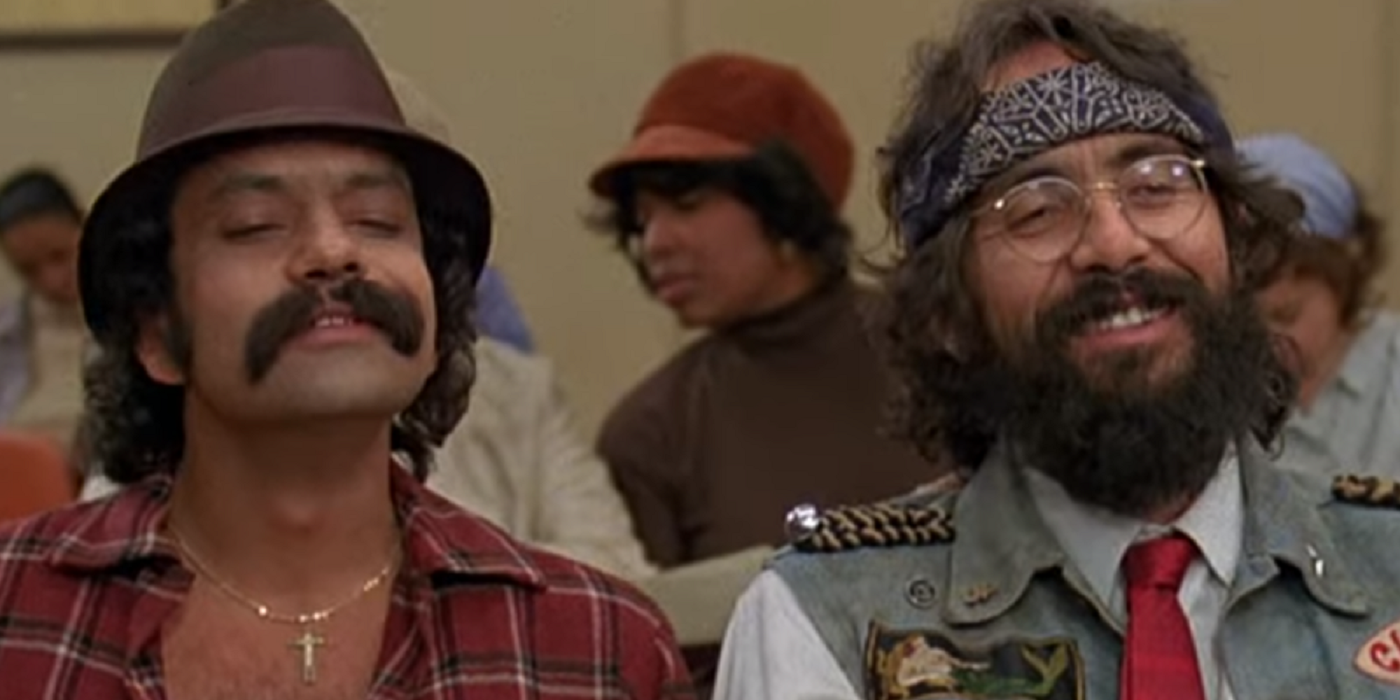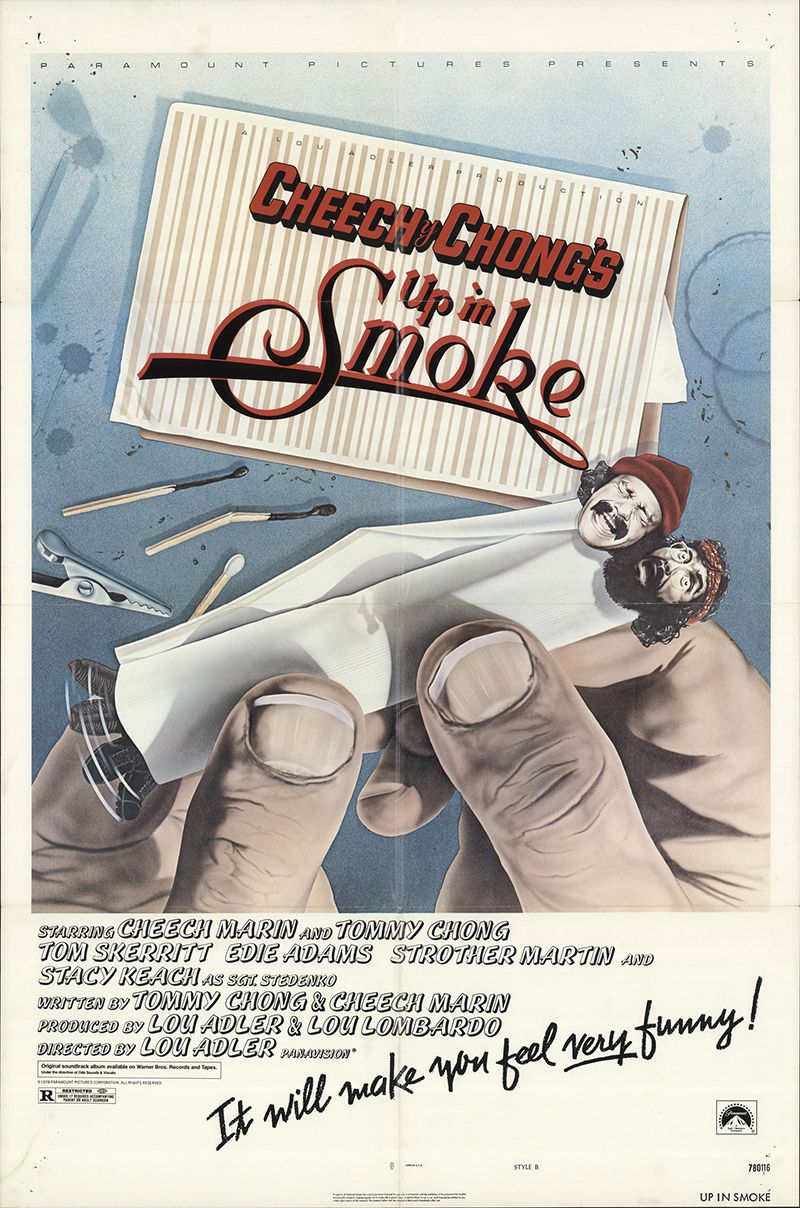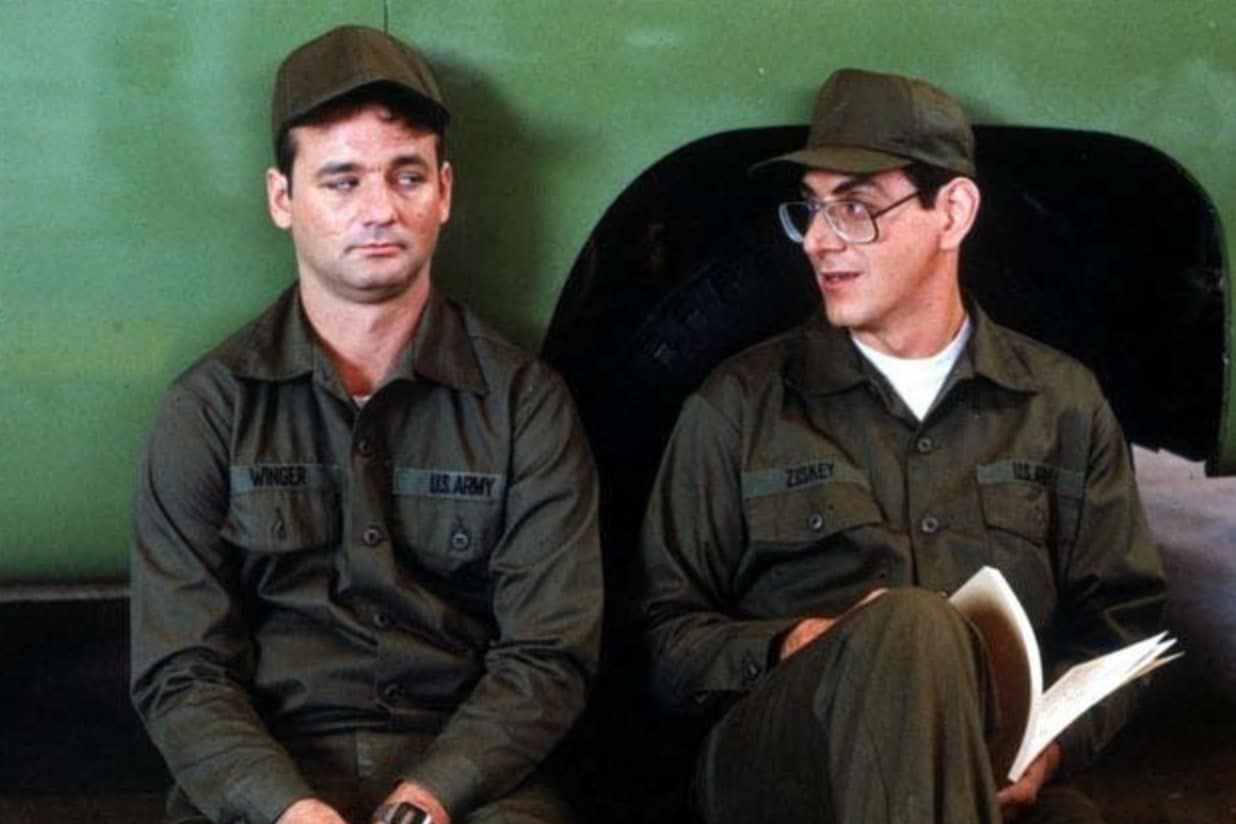MOVIE URBAN LEGEND: Stripes was originally intended as a Cheech and Chong vehicle.
Ivan Reitman's big showbiz break was unusual. He produced a stage musical in Toronto starring the Canadian magician, Doug Henning. The show proved popular enough that it made its way to Broadway, where it was completely re-written, with all new music by Stephen Schwartz and a new title, The Magic Show, but the actual magic from Henning was kept in the show. Still, Reitman was now a producer on a legitimate Broadway musical.
The person who Reitman had do the book for the original musical was a young man named David Cronenberg, who was interested in horror and had been doing short horror films on his own. Reitman struck up a production partnership with Cronenberg and the two put together Cronenberg's very first feature film, 1975's Shivers. The movie was a surprise hit as the biggest grossing Canadian film that year (which isn't saying a whole lot, but hey, better to be the highest grossing film than to NOT be the highest grossing film).
So through these two projects, Reitman unexpectedly found himself with a little cachet. He was a movie producer who also had a musical on Broadway, after all. So he used that cachet to cut a deal with National Lampoon where Reitman would produce a stage show and possibly make movies using the National Lampoon brand for the movies. The stage show, The National Lampoon Show, was popular, but then a good chunk of the cast was signed away by fellow Canadian Lorne Michaels for his then-new TV series, Saturday Night Live (Gilda Radner and John Belushi to start and then Bill Murray a year later). One of the only people NOT signed away was Harold Ramis. So Reitman pitched Ramis on taking some of the sketches from the show and turning it into a movie.
Working with some other National Lampoon writers, Ramis came up with the script for what would become National Lampoon's Animal House, which starred Belushi and became a surprising blockbuster, earning over $100 million on a $3 million budget. Reitman then went to work with Ramis on another project, a teen camp comedy called Meatballs. They were able to convince Murray to do the film and it made over $40 million on a roughly $1 million budget. Meatballs was Reitman's directorial debut.
Ramis then co-wrote and directed Caddyshack the following year, which also co-starred Bill Murray and IT was a hit, as well.
Ramis and Reitman would then reunite, along with Murray, for yet another hit film, but first, Reitman had a whole other direction in mind for the film that would ultimately become Stripes.
It was actually when Reitman was on the way to the premiere of Meatballs that he just had an idea pop into his head - "Cheech and Chong go the Army!"
Richard "Cheech" Marin and Thomas "Tommy" Chong (it feels weird to give "Tommy" the same treatment as "Cheech," but gotta be consistent) met in British Columbia in the late 1960s. Chong was from Canada and Marin was trying to avoid being drafted into the Vietnam War. The two became a comedy team called Cheech and Chong. Their act revolved around the conceit that they smoked a lot of marijuana and thus were always stoned. Their most famous bit, "Dave's Not Here," involves a man named Dave trying to get his stoned roommate to open the door to their apartment before the cops catch him (as he is holding lot of drugs). "It's Dave, open up!" "Dave's not here, man!"
Eventually, their stoner humor became popular enough that they did a number of hit comedy records and finally had their own surprise hit movie, with 1978's Cheech and Chong Up In Smoke making over $40 million on a low budget.
They did a sequel to Up in Smoke in 1980 called Cheech and Chong's Next Movie.
So at the premiere of Meatballs in 1979, they would not only be hot, but they would be looking for another project after the sequel. Two of the guys who co-wrote Meatballs with Harold Ramis, Len Blum and Dan Goldberg, were hired by Reitman (after he got a general commitment from Paramount Pictures) to put together a script based on the concept of Cheech and Chong Join the Army.
The script was sent to Cheech and Chong's manager and the duo was interested in doing the movie. The catch, though, is that Marin and Chong wanted full creative control over the film and Reitman was not prepared to give that up. So they parted ways and Reitman now had a Cheech and Chong script with a "go" from a major studio, but no Cheech and Chong.
Reitman then had a clever idea. Obviously, being very familiar with Bill Murray's work, he wanted Murray to now star in the film, with the story re-worked to eliminate the Cheech and Chong connection (I believe Stripes doesn't actually have ANY stoner humor from the main pair in the film). However, for his partner, Reitman went to his old friend, Harold Ramis, who was coming off writing and directing the hit film, Caddyshack. Reitman's idea was that since Ramis had previously acted with Murray on the National Lampoon stage show, he could follow-up his directorial debut with his ACTING debut, as well.
Not only that, though, but Reitman figured Ramis could then re-write the script, and since he would be acting in scenes with Murray, a brilliant improvisational comedian, Ramis could tailor the scenes for Murray while acting in them.
Ramis was hesitant, and so was Paramount. They were thrilled with Murray as the new lead, but they wanted a bigger name (or at least a more notable actor period) for the best friend role. Reitman, though, insisted that Murray would only work with Ramis (could be true, probably wasn't true) and so Stripes was born. The movie was another major hit and it is still a well-revered comedy classic (especially the first half of the film).
The legend is...
STATUS: True
Be sure to check out my archive of Movie Legends Revealed for more urban legends about the world of film.
Feel free (heck, I implore you!) to write in with your suggestions for future installments! My e-mail address is bcronin@legendsrevealed.com.




